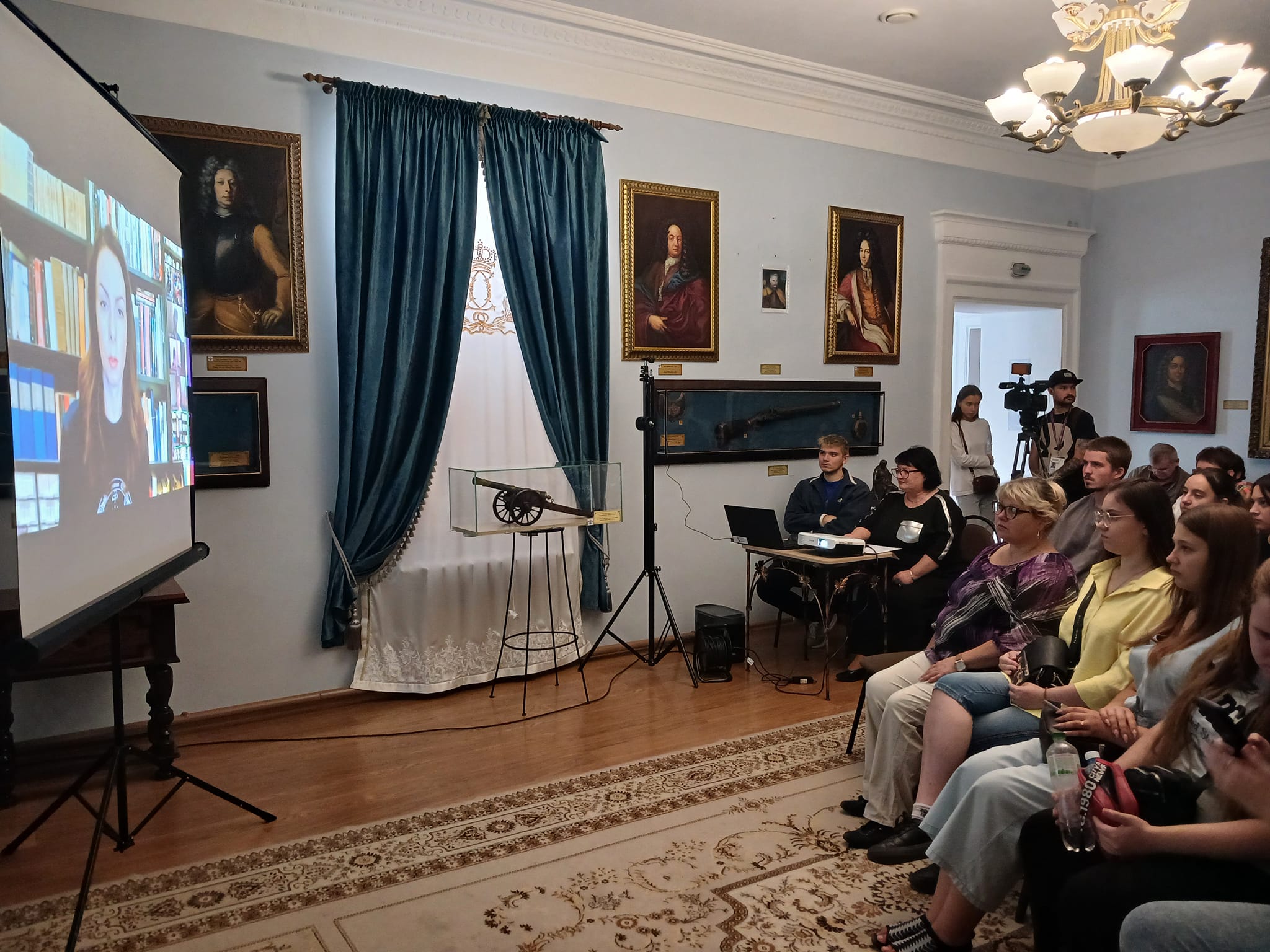

This is a joint project of museum workers and the famous researcher of Swedish archives Maryna Trattner. The section of the exposition hall is supplemented with documents from the beginning of the 18th century: digitized and printed maps in Swedish archives, battle plans, testimonies of participants in the events, lists of letters, newspaper articles and excerpts from military diaries, diplomatic correspondence of Sweden, Poland, Turkey, England, the Netherlands, and France. For years, the researcher collected these important documents in the archives, collaborated with colleagues on their translations into modern Swedish, and translated them into Ukrainian. The publication of these documents makes it possible to get rid of Russian narratives in the assessment of the events on the Prut River in 1711, to learn more about the events that Russian historical science has kept silent about.
After the Battle of Poltava, the Swedish King Karl XII and the newly elected Hetman of Ukraine Pylyp Orlyk renewed the Ukrainian-Swedish treaty in exile in Bendery (Ottoman Empire), intending to continue the struggle against the Moscows in Eastern Europe. One of the main tasks for them was to establish relations with French diplomacy, which at that time played a leading role at the Sultan's court. France understood the need to weaken Muscovy and its ally Austria. Turkey, for its part, was very worried about the strengthening of the positions of the Moscow Empire and the approach of the enemy's troops to its borders. The joint work of Ukrainian, Swedish and French diplomacy was crowned with complete success. On November 9, 1710, the Ottoman Empire declared war against Moscow.
In February 1711, Peter I hastily withdrew his regiments from the Baltic States and sent them south. The most favorable direction for the offensive of significant Moscow forces (almost 80 thousand soldiers) was Right Bank Ukraine and the territory of modern Romania. The Muscovites had to force the Dniester, the Prut, reach the Danube earlier than the Turkish troops and defeat them on their territory, and at the same time finish off the army of Karl XII and Pylyp Orlyk.
In the course of these events, the battle on the Prut River in 1711 near the village of Stanileshti played a decisive role. Turkish-Tatar troops completely surrounded the Moscow camp, the advanced units of the janissaries were several hundred paces away. On July 8, a battle broke out that lasted 36 hours with breaks until July 10.
Going to the Prut, the Moscow tsar hoped for a quick victory, as at Poltava, but it turned out to be completely different. The position of Peter I was extremely desperate, even critical. The supply of ammunition was limited, there was not enough food. Famine began in the camp. The tsar was forced to admit defeat and declare: "... now I feel as bad here as my brother Karl did at Poltava." Peter I decided to ask for a truce. To conduct negotiations with Vizier Baltaji Mehmed Pasha, he sent the best diplomat Peter Shafirov to sign peace on any terms, except for captivity. Peter I was ready to give the conquered territories not only to the Turks (Azov, Tahanroh, Kamiani Zaton), but also to the Swedes (the Baltic coast and Pskov).
The Moscows managed to bribe the Turkish commander-in-chief, who received 200,000 Chernivtsi. Mehmed Pasha let the Moscows out of the trap by signing the peace known in history as Prutskyi.
In the Prut Treaty, the clause relating to Ukraine and Poland was not clearly stated, each side understood it in its own way. Pylyp Orlyk interpreted the treaty in such a way that under it the tsar renounced all of Ukraine, while Moscows insisted that it was liberating only the Right Bank.
In fact, the Prut Campaign and the no less important battle on the Prut River became another tragedy for the Ukrainian people. Pylyp Orlyk failed to achieve the sovereignty of the Ukrainian state. These events also affected Sweden. The last hope of Karl XII to gain an advantage over Moscows during the Northern War was lost. For Moscow - the loss of the glory of its weapons, prestige, the southern fleet, the devastation of the state treasury. "Holy Victoria", won by Peter I "with little blood" near Poltava, in the Battle of Prut demanded a great deal of blood, considerable funds and dishonor to the Russian arms.
To the news list